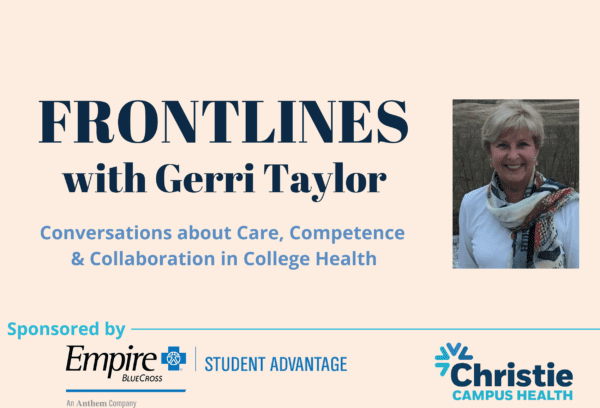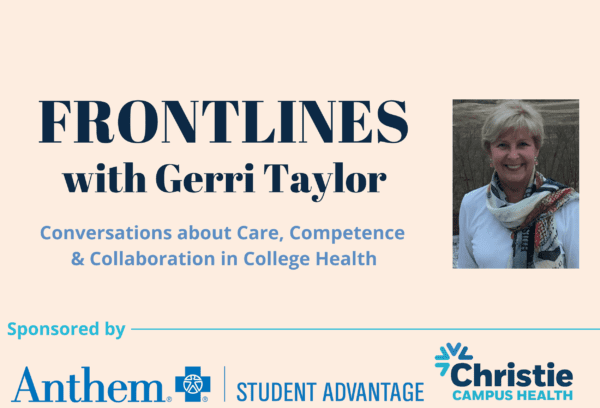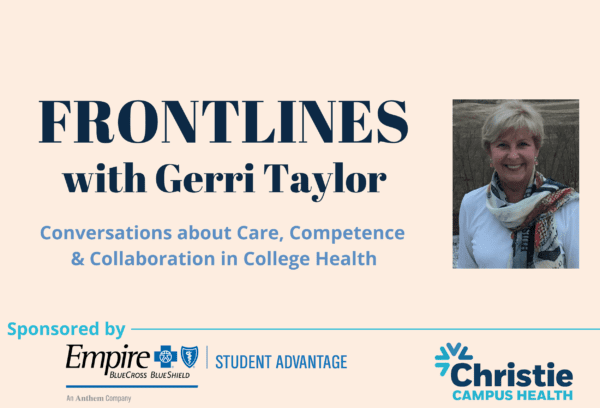When students first go off to college, they bring with them what they’re most interested in. For me, it was participation in many sports and a keen interest in physical health and mental wellbeing. My name is Owen Chicos, and I’m a rising sophomore at Wake Forest University. I’d like to share my perspective on these topics as I experienced them my first year with the hope of providing input for leaders everywhere and making a connection to other students like myself.
I have only one school to report on, so I will relay what I see as the pros and cons of my experiences at my school, with the acknowledgement that many colleges share similar policies and resources. Wake Forest does have a great deal of health-promoting initiatives that help students maintain and improve their mental and physical health and wellbeing. Some of these include: The Wellbeing Center and its gym/facilities, the resources dedicated and devoted to the Health and Exercise Department, the Health Centers, the Health and Exercise Science (HES) courses and labs offered, and the HES classrooms and laboratories themselves.
I find these things to be very important aspects of my personal experience at Wake. A well-equipped, and clean gym is central to the needs of my daily life, and the gym in the Wellbeing Center far exceeded any expectations I had. Also, I found that the other facilities and resources in the Wellbeing Center and the HES department allow for myself and other students majoring in HES to become immersed in the various areas of health and wellness, along with improving our ability learn and better understand the topic.
At the same time, there are a number of barriers that exist at my school and many others that administrators should think about when they address health and wellbeing on their campuses. Some of the main barriers to maintaining good mental and physical health and wellness include: dining services, dormitory layouts, the matching of suitemates, residency requirements, the dominating academic workload, and its relation to the stress and anxiety that is ever-present at highly-competitive schools.
First, campuses should consider the type of food they offer students as well as the information (calories, etc.) that is provided along with these options. Wake does list the calories for the foods in the dining hall; however, they do not offer many lower-calorie, or higher-protein options for people who are looking to track their calories and eat an adequate amount of protein. Also, there are noticeably more unhealthy and high-calorie options offered than there are lower-calorie and healthy options. Restaurants such as Subway, Chick-fil-A, and pizza places are located throughout campus, but there are not many healthy dining options if you don’t want to eat at the dining hall.
Because the first year of college is such an important transition period in a person’s life, schools should pay particular attention to the policies and practices that will play out for first-year students as either helpful or hurtful to their health and wellbeing.
Mental health is also very affected by where you live and who you live with. The dorm layout does not allow for privacy, which can be difficult for mental health. Due to the close nature of the rooms, even with a single room, everyone can hear what is going on next door at all times. I struggled with that, as I was often uncomfortable making phone calls or even watching tv too loudly because I knew everyone would be able to hear. This is even more difficult for students who utilize teletherapy, as they can be concerned that their roommates or even neighbors can hear their conversations with their therapists.
My personal experience in the dorms was difficult. While I was lucky to be matched with suitemates who were nice and respectful, our schedules and lifestyles did not match up, and it was very hard for me to get enough sleep or get any work done in the dorm. I wake up early to go to the gym before my morning classes, so I go to sleep early as well. However, it was not fair to ask five other college students to be quiet at 9pm, so I often was not getting the necessary amount of sleep that I needed.
All of this would be helped by more flexible residency requirements. The overwhelming majority of college students are adults, and I believe they should be allowed to live off-campus if they feel as though that is what is best for them, and not be restricted by, in our case, three-year residency requirements. For some, living off-campus would make their life easier, and it may help to decrease some of their stress and improve their mental health.
Finally, the stress that comes with the heavy workload at my college (and most like it) can be hard on mental and physical health. I do understand that as students we are in college, and therefore our “job” is to go to classes, complete the work, and learn. However, intense academic workloads can make it difficult for students to keep up with their academics while also prioritizing their physical health, maintaining a social life, as well as their mental health. Oftentimes, students feel as though they need to sacrifice one of these other areas in order to keep up with the academic workload. Many of my friends felt as though they sacrificed their physical health, by either exercising less or deprioritizing their nutritional needs in order to have time to complete all of their work and maintain their social life.
Personally, my academics and physical health have always been top priorities in my life, so I made sure to prioritize those. I would be sure to go to the gym every day and get eight hours of sleep every night. I continued to follow my nutrition plan and would go to the grocery store once a week to buy the foods I needed. I also made it a point to attend all of my classes, and I would spend the majority of the day after classes getting my work done. Finally, because I also wanted to look out for my mental health, when I had any free time, I would choose to relax by either watching tv shows or sports, and also talking with friends and family. Therefore, while I felt as though I was able to maintain my academics, physical health, and mental health to the best of my ability, I sacrificed a great deal of my social life during my freshman year.
These experiences are not specific to Wake Forest, but rather to college in general, especially for first-year students. Because the first year of college is such an important transition period in a person’s life, schools should pay particular attention to the policies and practices that will play out for first-year students as either helpful or hurtful to their health and wellbeing, and take into account the constructive feedback they receive from students who are, at the end of the day, the most knowledgeable about what would improve their own health and wellbeing.




